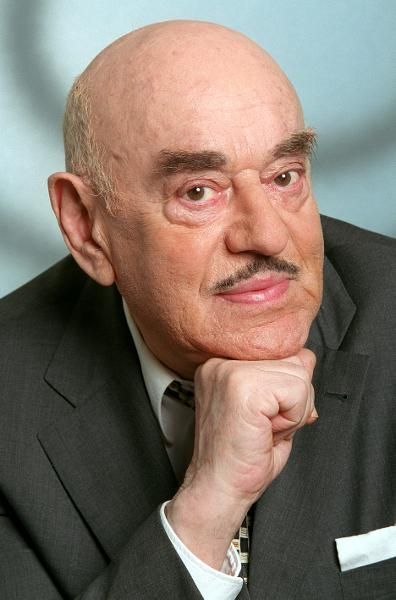Roman Polański in Munich: between fame and infamy

He took photos for the French fashion magazine Vogue as well as staging plays and operas in various theatres in Europe. In 1974 he directed “Lulu” at the Spoleto festival in Italy. This was followed in 1976 by “Rigoletto”, his first (and only) work as a director on the German stage. In an interview with the Süddeutsche Zeitung, he said that he chose this opera because of the multi-layered characters and not least because of the music. And although it was one of his favourite operas, he had never seen a production of “Rigoletto” until then.[3] The potentials inherent in the artistic presentation were what appealed to him in theatre and opera: while film as an art form demanded that the presentation be as realistic as possible, in a stage production there could be a kind of collusion between the actors and the audience to accept reality as defined by the production.
The international star and his “Rigoletto” attracted a lot of attention and raised expectations in Germany, especially in Munich. The tabloid newspapers were not the only ones to stimulate such expectations in the weeks running up to the premiere, as DIE ZEIT was to summarise later. The price of opera tickets on the black market leapt fivefold. The cultural elite were looking to the Polish avant-gardist to provide them with a dramatic condensation or a contemporary production of Verdi's melodrama. But at a press conference during rehearsals Polański said that he had changed almost nothing in the libretto and that there would be no spectacular innovations: “I'm not looking for some kind of gimmick for the concept of the opera” and they could expect no showy film effects. “I'm trying to keep within the convention of this opera.” In other words, he was confining himself to reviving something that was choked by convention and routine and to making it vital, fresh and authentic.[4] “What I'm trying to do is to create an atmosphere which expresses the content of the individual scene. I'm trying to be unconventional in the way people move. I'm trying to make singers move and sing in the same time whenever I can. And I'm trying to stage it in a way that people who don't know the libretto by heart can still understand what's going on.”
The premiere of “Rigoletto” on October 31th 1976 in Munich, failed to live up to the expectations of an avant-garde production. The audiences at the Bavarian State Opera were forced to forego their desires for a sensation.[5] Polański's premiere was a “really good municipal theatre production with many good ideas and a good deal of unattractive features [...]”, but “rarely went beyond these basic requirements.”[6] Apparently, as DIE ZEIT concluded in its review, there are all the “ineradicable platitudes” of an opera that “a non-opera director would inevitably think of: arias at the front of the stage, with no addressees among the participants; the helpless and almost continuous staging of the choir in a semicircle; the grotesque attitudinising that masqueraded as emotions. If any of his film characters ever dared to risk similar mimicry, I fear Polański would chase them out of the studio immediately. But opera is not film, and Polański was unable (and probably unwilling) to change the pitiful production conditions.”[7] Although the critics praised Polański and his stage designer Carlo Tommasi for their surprising (movable) set, this failed to conceal their overall impression that the staging was “stale”. The critics may have reacted in a lukewarm manner but the first-night audience will still give Polański a thunderous ovation. In the end the show was not a major setback for the world-famous director, even if it would be rarely discussed in Munich in the future.
[3] Süddeutsche Zeitung: Roman Polanski in interview with Charlotte Kerr, 28.10.1976. cf. Paul Cronin (ed.): Roman Polanski Interviews, 2005, p. 65
[4] DER SPIEGEL, 25.10.1976
[5] Diederichs-Lafite, M. (1976). Donaueschinger Musiktage 1976. Österreichische Musikzeitschrift, 31(12), pp. 678-680. Retrieved 30 March, 2018, from doi:10.7767/omz.1976.31.12.67
[6] http://www.zeit.de/1976/46/neue-einfaelle-alte-unarten (called up on: 27.03.2018)
[7] http://www.zeit.de/1976/46/neue-einfaelle-alte-unarten (called up on: 27.03.2018)







